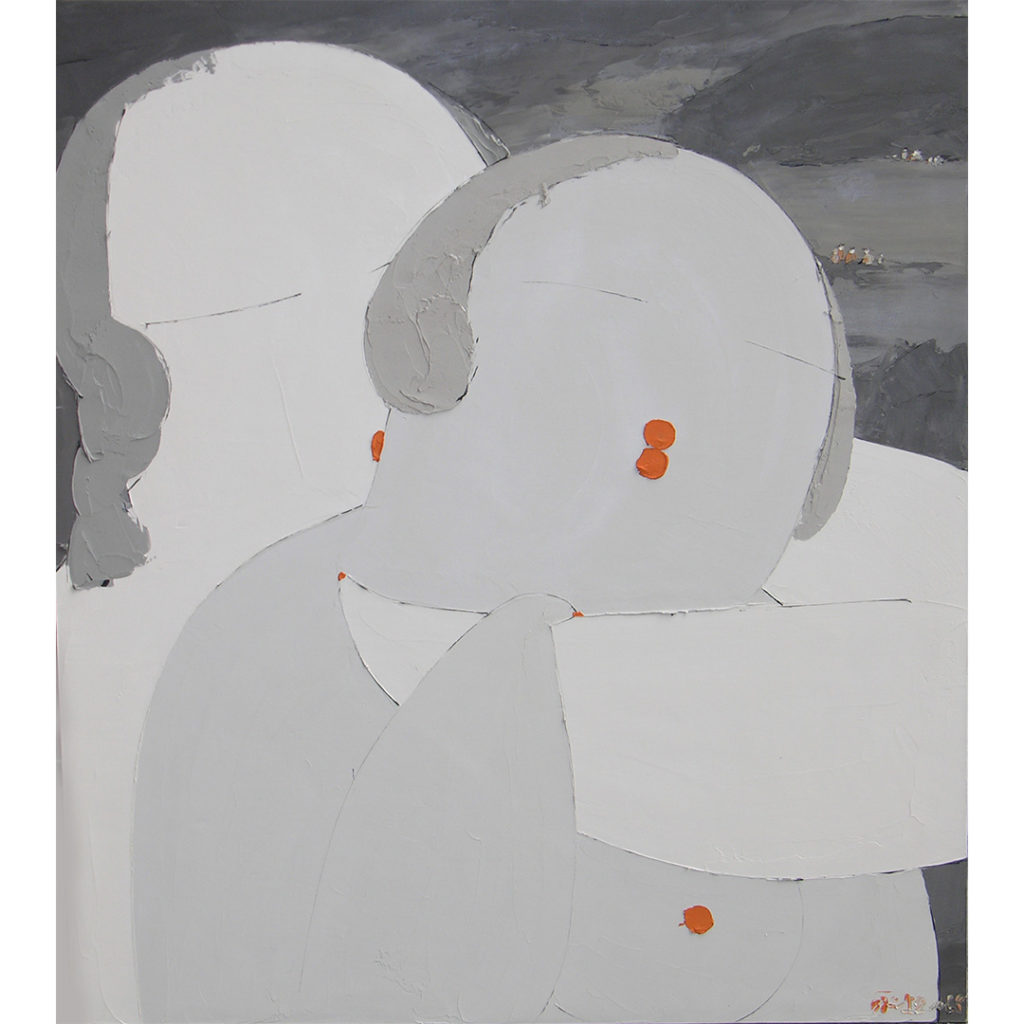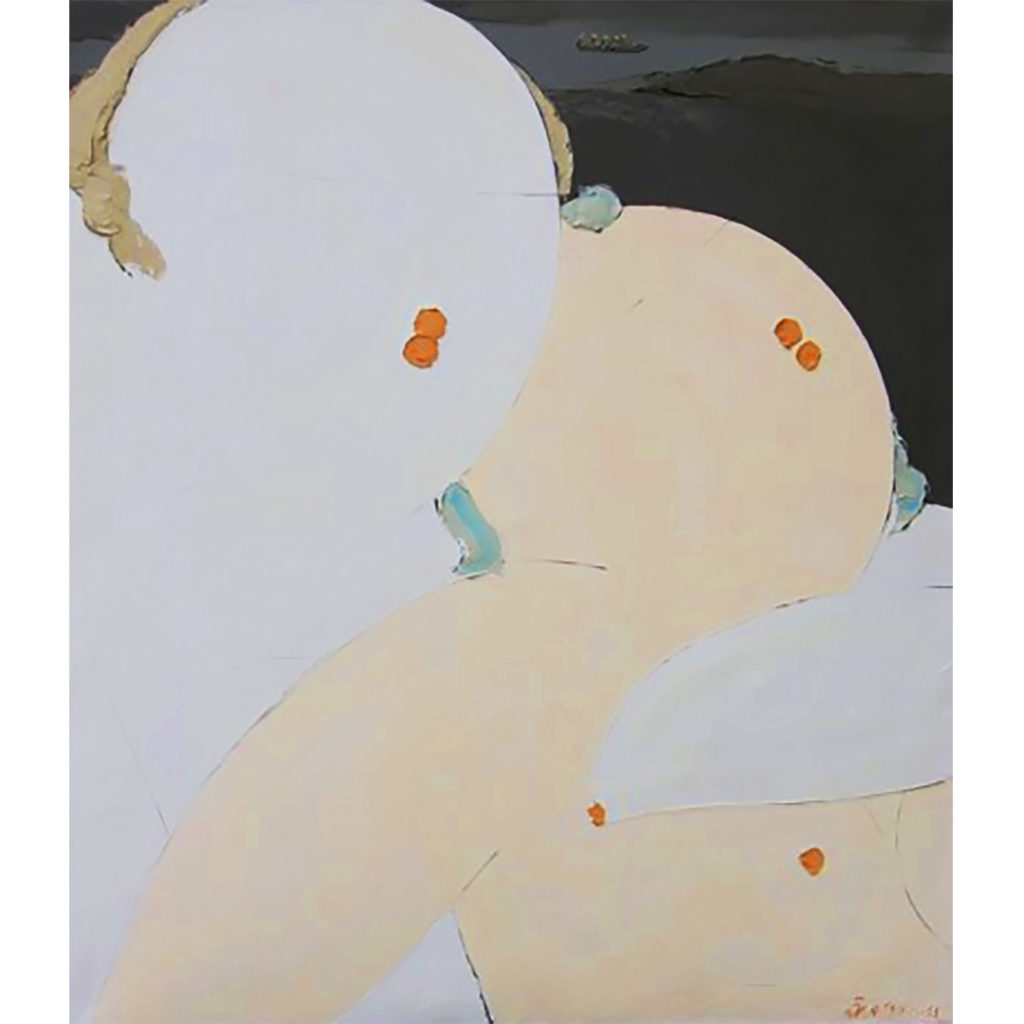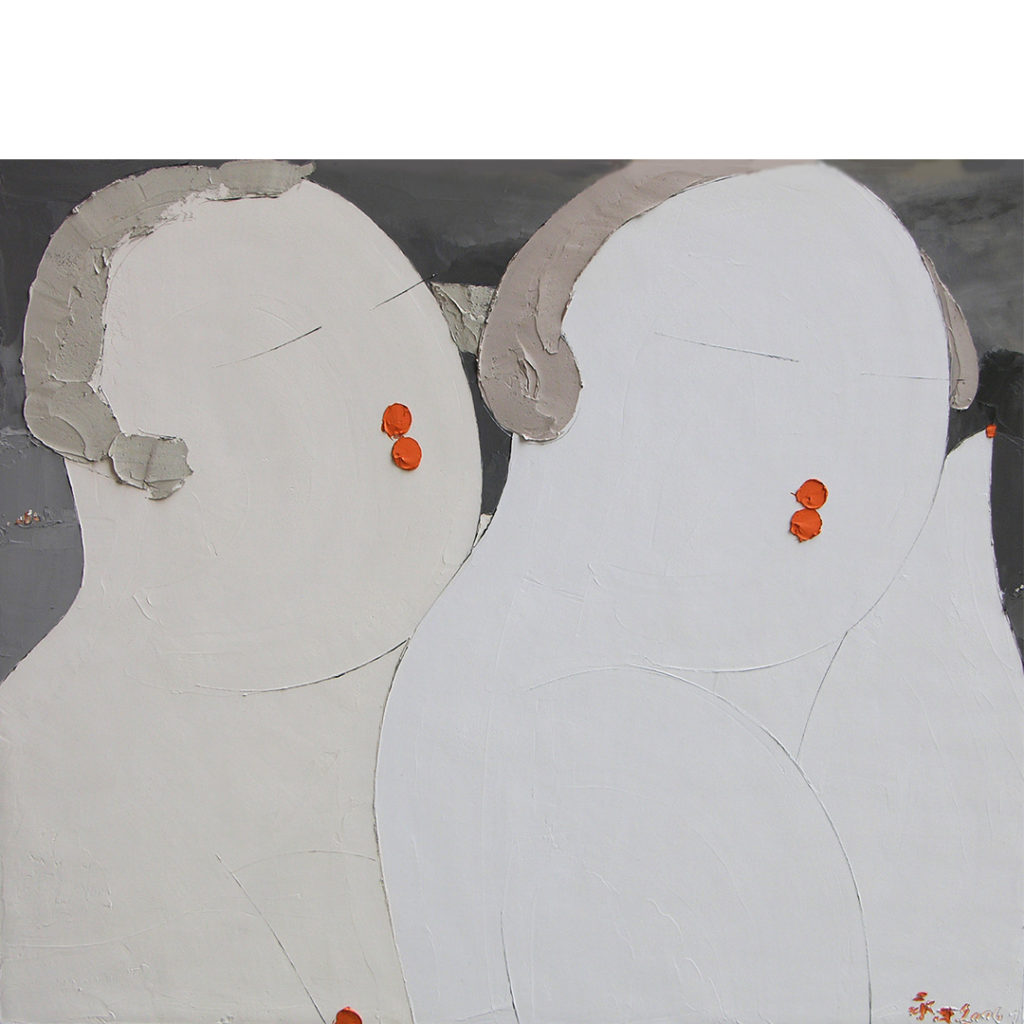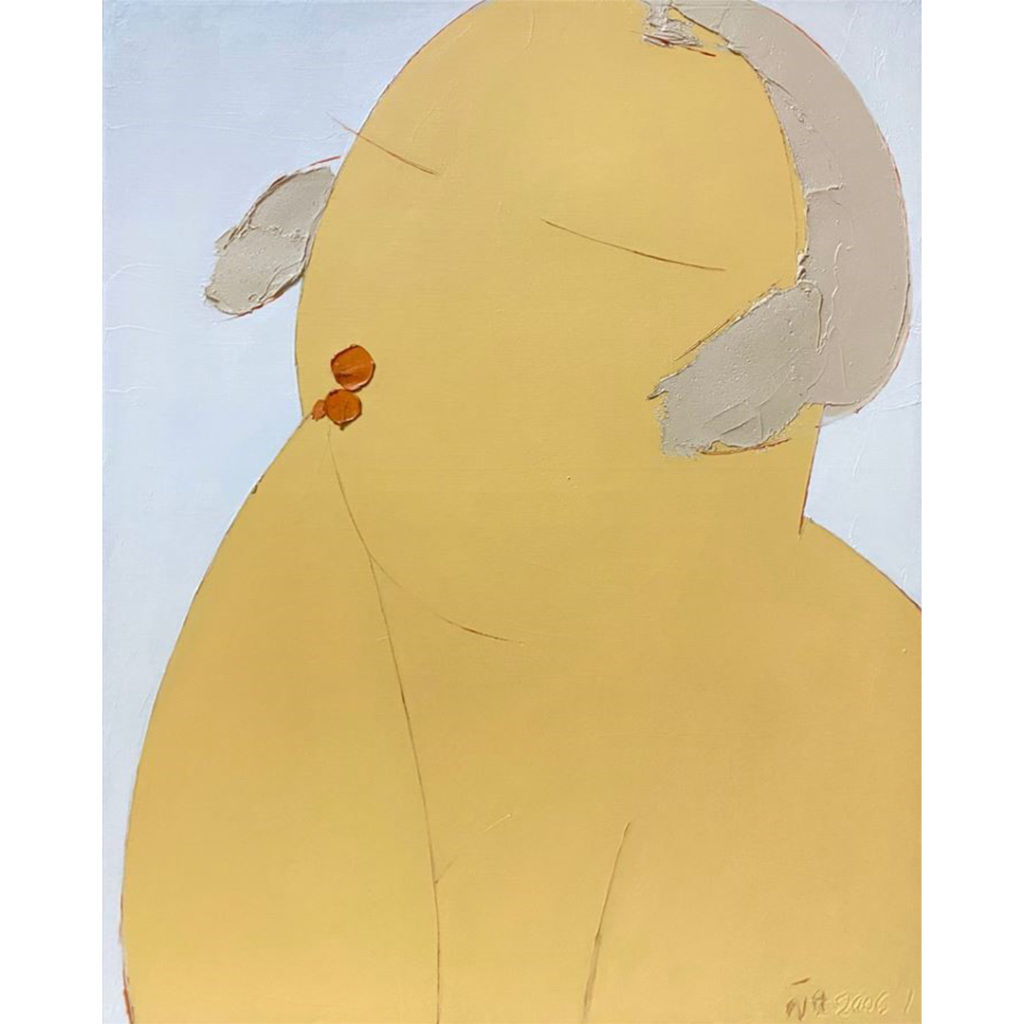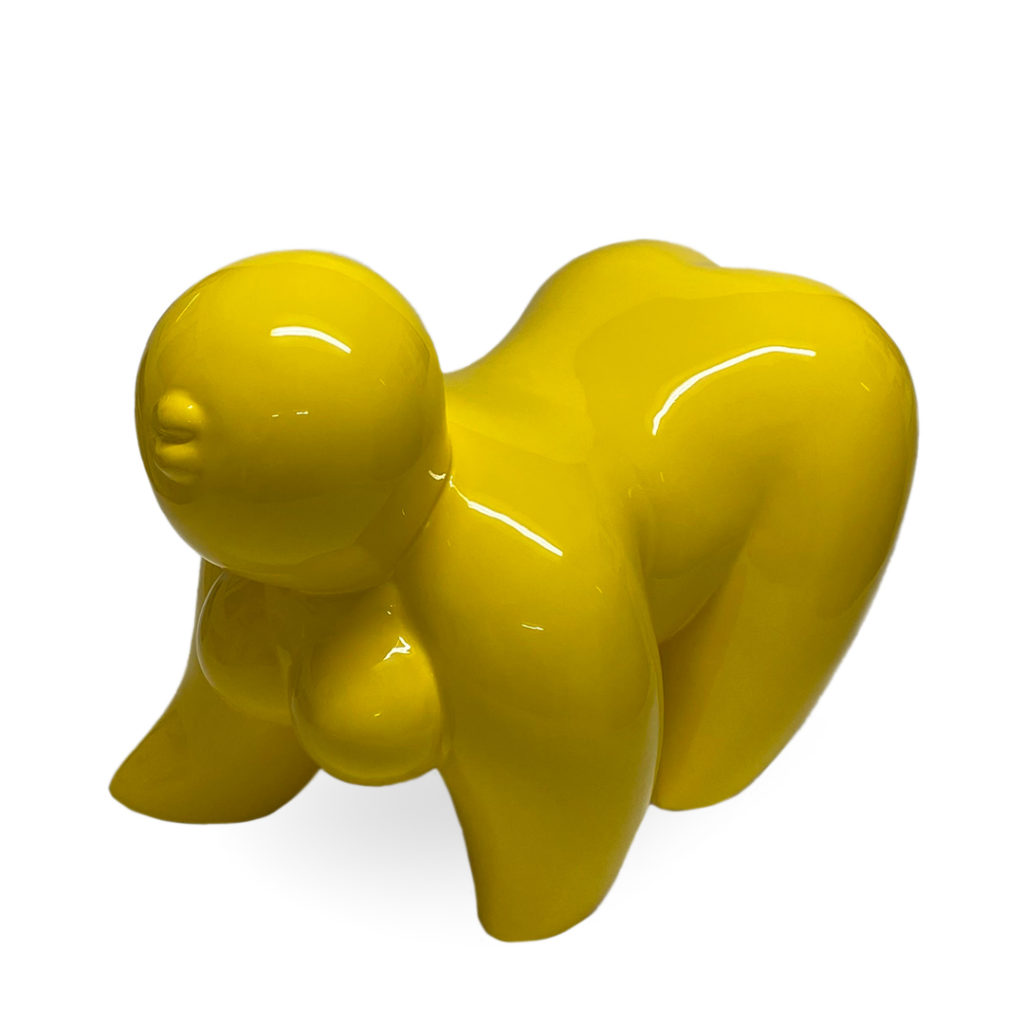PANG YONGJIE
龐永傑
B.1968
Pang Yongjie is recognized as one of the leading Chinese artists who championed China’s “post-contemporary abstract” movement. He has shaped an unorthodox abstract figurative painting style, gaining recognition for his voluptuous and playful rendering of fleshy human figures.
Pang YongJie was born in Dongming, Shandong Province in 1968. He studied at Shandong Normal University and graduated from the Fine Arts department in 1990. For the next three years, he engaged in research at the Central Academy of Fine Arts in Beijing. He is currently a professional artist based in Beijing.
Through the years, Pang has been invited numerous times to hold solo exhibitions in cities across Asia and Europe with each warmly received. His sculpture series Traipsing on All Fours was launched to great rapture at the Shanghai Art Expo and grabbed the attention of all. Furthermore, one of Asia’s largest Chinese auction houses Ravenel has collected one series of his sculptures at his solo exhibition in Taiwan.
2019
“Up One’s Sleeve”, Solo exhibition, Riverside Museum, Beijing, China
2017
Asia Contemporary Art Fair, Hong Kong
2016
Singapore Contemporary Art Fair, Singapore
“Eccentric Curves”, Solo exhibition, Shanghai, China
2015
Biennial of Montreux, Switzerland
2012
“No.2 China On Going”, New York, USA
“China Contemporary Sculpture”, Hamburg, Germany
2009
“Chinese Contemporary Art Exhibition”, Amsterdam, Netherlands
2008
Solo exhibition, Shanghai, China
2005
Solo exhibition, Netherlands
Solo exhibition, Belgium
“Degenerate Dharma” Beijing-Tokyo Art Projects Exhibition, Tokyo, Japan
2004
Solo exhibition, Shanghai, China
2003
Solo exhibition, Antwerp, Belgium
2002
Solo exhibition, Rotterdam, Holland
1990
Award of Excellence, Shandong Young Artists Exhibition

